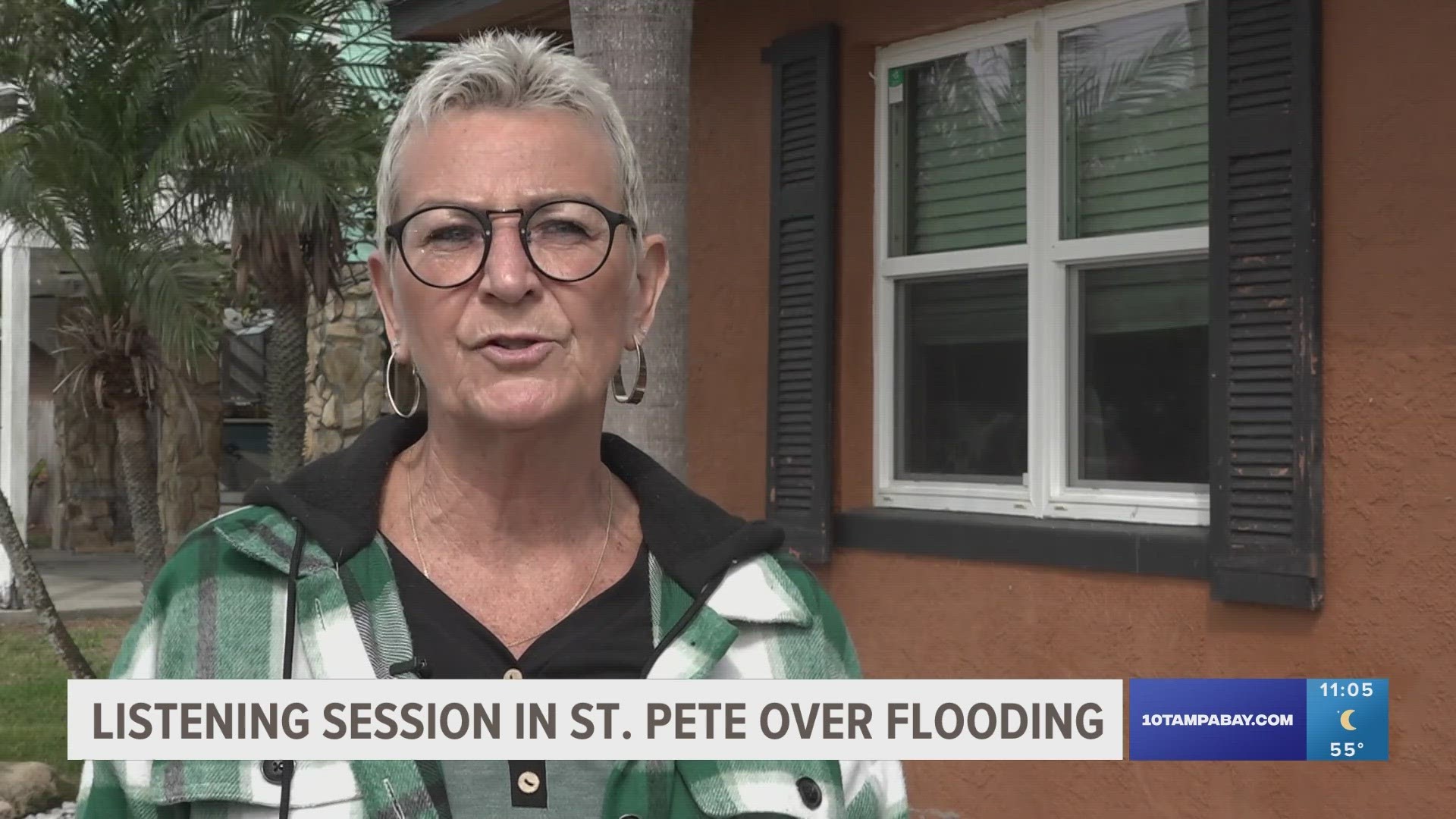ST. PETERSBURG, Fla. — While homeowners spoke and city officials took notes, no action was taken at a listening session in St. Petersburg on the problem of recurrent flooding.
Dozens packed an auditorium at Johns Hopkins All Children’s Hospital downtown and first heard opening remarks from elected officials like Mayor Ken Welch and Councilmember Brandi Gabbard, then took in a presentation from Public Works Administrator Claude Tankersley.
The city has spent tens of millions of dollars on stormwater projects and says tonight was only one of several public efforts to show they consider flooding assistance their top priority. But for many homeowners, time has run out on mitigation and they are planning to leave.
For 30 years, Pattie Reyes has lived at her home on 83rd Avenue North. But now she's fixing to move because of the flooding. First, it was a no-name storm in November 2020. Then Hurricane Idalia flooded her home again. Finally, this past December, another no-name storm left several inches of standing water inside her house.
“In the last two years, it's been nonstop," she says. “I have three neighbors up this street that are already gone. They're having contractors work on the house. That's it. As soon as it's done, they're putting for sale signs on it."
Karen Lucchese spoke at the meeting and told city leaders she’s only lived in the area for a year, has already had her house flooded, can’t gain any traction with FEMA for financial help, and has been living in a temporary residence in Land O’ Lakes.
"So, I don't know what it takes to get assistance,” she says. “But apparently, we're not those people, I don't know."
“I don't feel like anything was accomplished,” Reyes says. “It was a resilience listening session and they heard us all complain, but they know that!"
The city is working on completing a stormwater master plan and a citywide seawall plan.
More homeowners are classified as living in “repetitive loss properties,” which FEMA defines as buildings with at least two claims of $1,000 over 10 years. The number of properties in St. Petersburg that are now considered “repetitive loss” stands at 969, which is far higher than the previous year’s tally at 585 properties.

